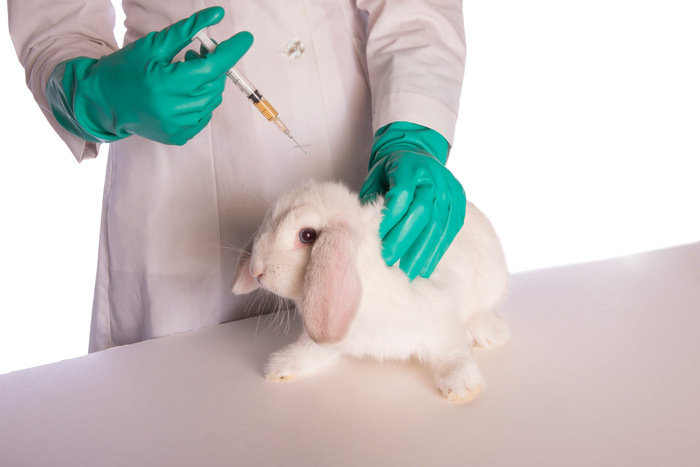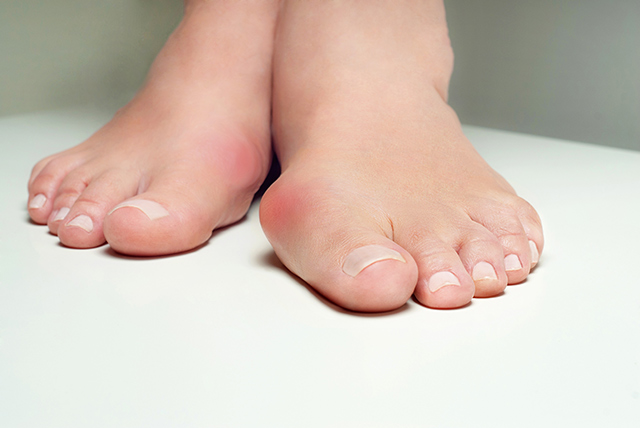“Cruelty-free” labels are misleading, look for this label if you’re against animal testing!
11/09/2015 / By Julie Wilson

Making the switch to all-natural, organic or chemical-free personal care products is one of the best decisions you can make for your health. Cosmetics and personal care products often contain some pretty awful ingredients that can genuinely affect your health and quality of life.
Toxic ingredients found in personal care products pose the most risk to women; firstly, because women use more products than men, and secondly, because many personal care products contain endocrine mimickers that can damage a woman’s reproductive system, affecting her ability to conceive.
Unfortunately, making the decision to use cleaner, safer personal care products is the easy part; the hard part is navigating which ones are actually safe, as most labels on “all-natural” products are essentially meaningless since they aren’t regulated and can mean anything, as long as the manufacturers say so.
You may see “cruelty-free” a lot, but what does it really mean?
One label that’s become increasingly popular on all-natural products is “cruelty-free,” which sounds really good to hear — but, what exactly does it mean?
Well, after doing some research, we’ve got some bad news and some good news, too, thankfully. Let’s go ahead and start with the bad so we can end on a positive note here.
It turns out that like many other labels on “all-natural” products, the “cruelty-free” label, which is often accompanied by “not tested on animals,” is completely unregulated. Its definition actually varies from manufacturer to manufacturer.
According to MSPCA.org, “cruelty-free” can imply the following:
The power of the elements: Discover Colloidal Silver Mouthwash with quality, natural ingredients like Sangre de Drago sap, black walnut hulls, menthol crystals and more. Zero artificial sweeteners, colors or alcohol. Learn more at the Health Ranger Store and help support this news site.
- that neither the product nor its ingredients have ever been tested on animals. This is highly unlikely however, as almost all ingredients in use today have been tested on animals somewhere, at some time, by someone – and could be tested again,
- that, while the ingredients have been tested on animals, the final product has not,
- that the manufacturer itself did not conduct animal tests but instead relied on a supplier to test for them – or relied on another company’s previous animal-test results,
- that the testing was done in a foreign country, where laws protecting animals might be weaker than in the U.S.
- that either the ingredients or the product have not been tested on animals within the last five, ten, or twenty years (but perhaps were before, and could be again),
- that – as in the case of the CCIC’s Leaping Bunny Program – neither the ingredients nor the products have been tested on animals after a certification date and will not be tested on animals in the future.
Okay, now for the good news.
The Leaping Bunny standard — a label you can trust 
As mentioned in the last bullet point, there is a trustworthy program that maintains a single standard for “cruelty-free” labeling, and that’s the Coalition for Consumer Information on Cosmetics’ (CCIC) Leaping Bunny Program.
CCIC consists of eight international animal protection groups that banded together to promote “a single comprehensive standard and an internationally recognized Leaping Bunny Logo.”
The Leaping Bunny standard applies to cosmetics, personal care products and household products that do not use animal testing during any stage of their product development.
“The company’s ingredient suppliers make the same pledge and the result is a product guaranteed to be 100 percent free of new animal testing.”
To ensure that ingredient suppliers and manufacturers are keeping up with the standard, they’re subjected to random, independent audits, and their commitments to the label are reviewed annually.
Majority of animal testing occurs at the ingredient level
Remember, even if a product says “cruelty-free” or “not tested on animals,” there’s a good chance it has been, and it’s probably at the ingredient level, which is when most animal testing occur.
The Leaping Bunny Program is the ONLY standard that GUARANTEES a product is free from animal testing, according to CCIC.
“While many ingredients have been tested on animals in the past, the Standard is designed to prevent future animal testing and eventually drive animal testing out of the industry completely.”
The Leaping Bunny logo is recognized in the U.S., Canada and the UK and throughout much of the European Union. Click here to see which products are Leaping Bunny certified.
Leaping Bunny products can be found in these websites:
- Amazon.com
- DermStore.com
- DrugStore.com
- GreenCupboards.com
- iHerb.com
- Pangea.com
- VeganEssentials.com
- VineMarket.com
- VitaCost.com
- VitaminShoppe.com
You can also find Leaping Bunny certified products in a variety of stores, including Whole Foods, Sprouts, Target, CVS and Walgreens.
Sources:
Tagged Under: All-natural products, Animal testing, animals, Coalition for Consumer Information on Cosmetics (CCIC), Cruelty-free, FDA, Leaping Bunny standard




















